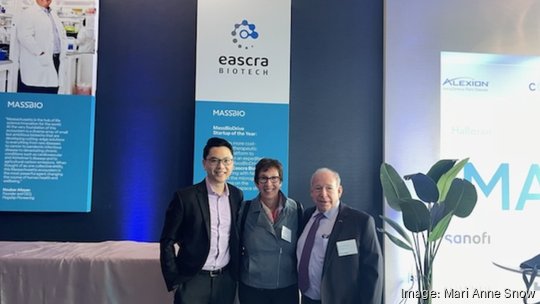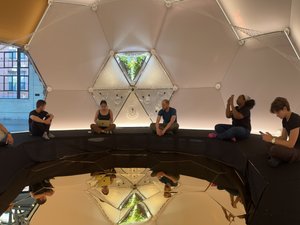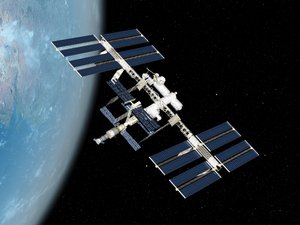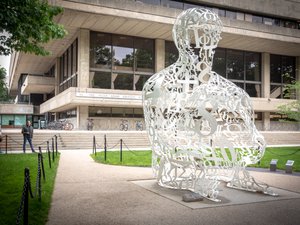
A Boston biotech company developing a nanoparticle delivery system for cancer and other types of drugs has received a $1.9 million award from the ISS National Lab's inaugural Igniting Innovation award.
Eascra was one of five companies selected by the International Space Station and NASA to receive the inaugural award. Co-founded by Mari Anne Snow, who previously founded resource education center The Remote Nation, Eascra is the only commercial company to be selected.
The other four awardees — Cedars-Sinai Medical Center; University of California, San Diego; University of Texas MD Anderson Cancer Center; and Wake Forest Institute for Regenerative Medicine — are all institutes of higher learning focused on research.
The Igniting Innovation award provides funding for research teams studying cancer and other disease-related technologies and is a critical part of the Biden-Harris Cancer Moonshot initiative. The five awards total of $7 million.
For Snow and her team at Eascra, the funding will help advance testing and a few more chances to send its experiments into space. The Boston-based company has already had its technology in the space station three times in less than 12 months, and is planning its next trips to the ISS in September and late winter. By the end of 2025, Snow is anticipating seven total flights to the ISS.
- Sign up for The Beat, BostInno’s free daily innovation newsletter. See past examples here.
According to Snow, Eascra is the first company to produce nanoparticles in space. The nanoparticles were inspired by DNA and are formed into tubular structures that bind around “cargo” — anything from RNA to proteins. The nanoparticles render the cargo room temperature stable and allow it to maintain its bioactivity for longer.
“It's not enough these days to just design a great drug, you have to be able to deliver it to its intended target,” said Snow.
According to Snow, the particles' long and slim size allows them to pass through cell walls more easily than conventional nanoparticles on the market today.
Part of the reason the particles are so effective is because of the research Snow and her team have done aboard the ISS. According to Snow, the team sees better uniformity and homogeneity when the particles are assembled in space, providing Eascra with more predictability in its loading capabilities.
It’s been a busy summer for Eascra. In addition to the $1.9 million from the Igniting Innovation award, Eascra was also accepted to the MassChallenge early-stage cohort in July. The Air Force recently approved a small business innovation research award related to applications for osteoarthritis treatment, and it just signed for its first lab space in Worcester via the Mass Biotech initiative.
The small team of three is also seeking to raise $3 million in its first private funding.
“We're not stopping. And that's what you’ve got to do when you're a scrappy startup and an early-stage life science company that's very committed and passionate about our technology. We believe our technology will help people, so we're going to do everything possible to advance it,” said Snow.







